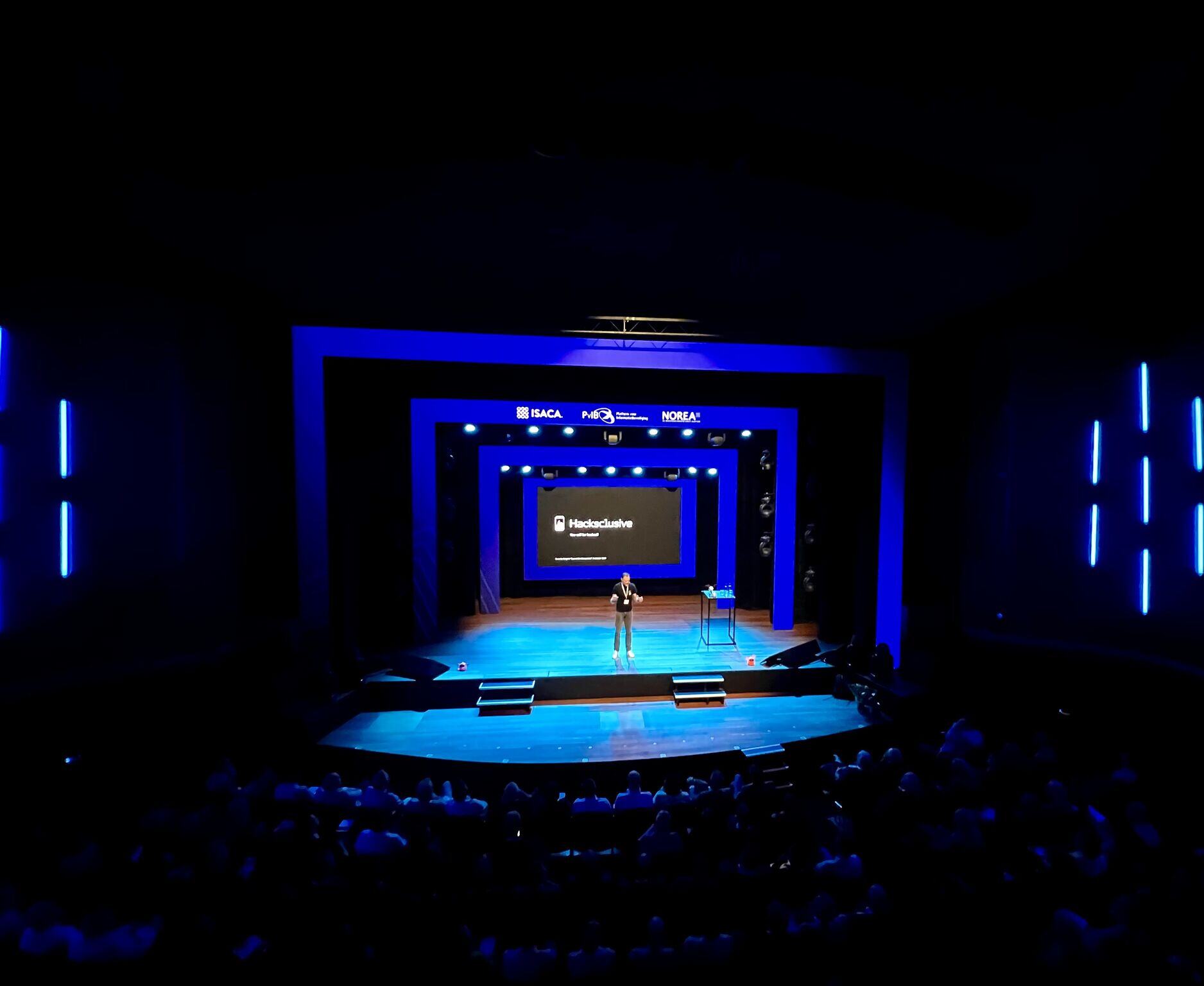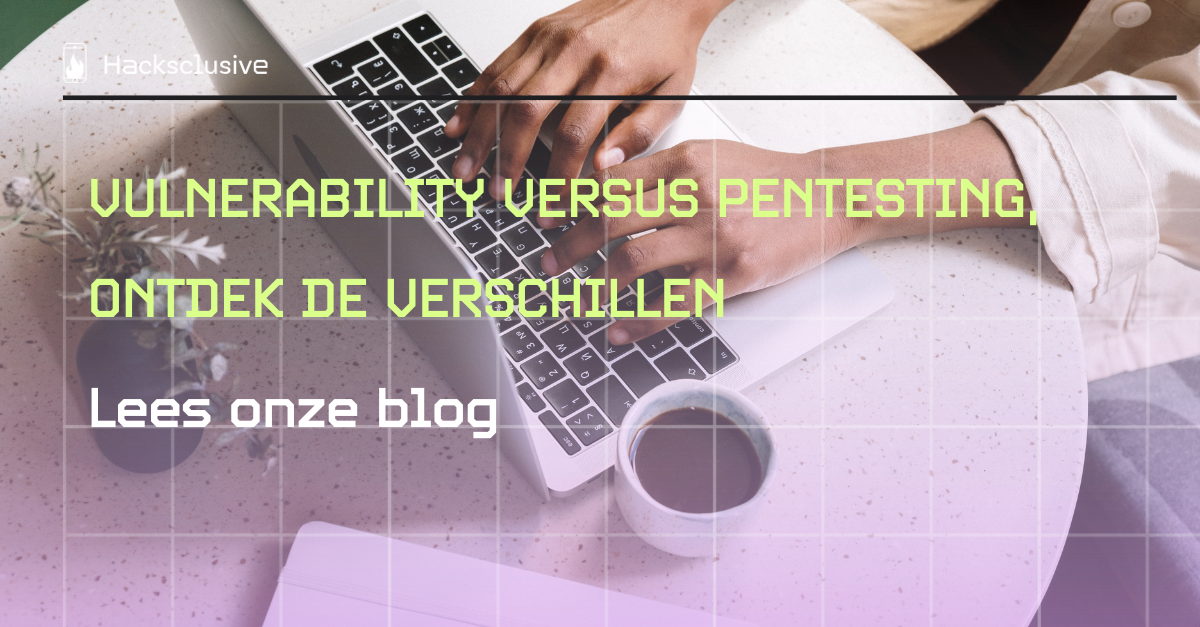Why Helloflex group uses periodic pentesting: "we have a high risk profile"
- Case Study
Today, thanks in part to strict privacy legislation, it’s increasingly important to properly protect personal data against data leaks and misuse. More and more organizations are therefore looking for a partner to expose the vulnerabilities in their digital products, including companies like HelloFlex group. We discussed this topic with Menno Methorst, Security Officer at HelloFlex group.

HelloFlex group is a software provider with a strong focus on companies in the recruitment and personnel sector, such as employment agencies, recruitment and selection agencies, and secondment agencies. With their workforce management software, HelloFlex helps these organizations simplify their daily HR processes using automation.
The company has a ‘high-risk profile’ because their products are used in an industry where personal data and special personal data are processed on a large scale.
Because HelloFlex handles sensitive information, a good cybersecurity process is very important. At all costs, they want to prevent any vulnerabilities in their product that could cause problems for their clients.
Periodic Pentesting with Hacksclusive
To prevent these kinds of vulnerabilities from being overlooked, the HelloFlex group wants to pentest their digital products periodically and frequently. They have recently embraced Hacksclusive as a permanent partner for solving this requirement.
This is not the first time HelloFlex group has turned to Hacksclusive for assistance. A while ago, HelloFlex group had Hacksclusive perform a pentest on one of its labels. Today, Hacksclusive is being used organization-wide to test processes and products for vulnerabilities.
So, the initial, one-off pentest, ended up becoming the starting point for a renewed collaboration.
In addition to looking for a partner that could perform pentests, HelloFlex group also wanted help with DevSecOps (Development, Security & Operations). This is a software development process that integrates cybersecurity at every stage, to deliver a robust and secure application.

Pentesting in the cloud has its advantages!
Hacksclusive's entire pentesting process is now available via a cloud-based platform. This makes pentesting an interactive collaboration between the client and the ethical hacker. In this way, HelloFlex group can take rapid action, ensuring critical vulnerabilities are dealt with in a timely manner.
“It is great that people on our side can get a handle on it this way. Because we can see the findings in real time, we can get started right away. If we think we have solved it, we can request a retest immediately. This way of working is therefore an absolute added value for us compared to a closed process that ultimately only produces a report at the end of the pentest process.
"By sharing the findings in real-time, Hacksclusive offers us the opportunity to take immediate action. This way we can work quickly and methodically on improving the safety of the product. As a result, our developers are not suddenly overwhelmed with a large number of ‘to-dos’ at the end of the process".
“At Hacksclusive you know that you get quality. It’s a young company, but this does not mean that they have yet to earn their stripes. Together, they combine years of experience within the cybersecurity sector”.
Menno Methorst, Security Officer, HelloFlex Group

Not always pleasant, but very important
Of course, there are always new challenges in the field of cybersecurity. After all, developments happen at lightning speed in this field. But what is the greatest challenge for the HelloFlex team?
“That is mainly due to the culture-shift component,” says Menno, who describes the significant challenge of communicating - across all layers of the organization - what is happening in the area of cybersecurity, and what needs to be done.
“At the moment we have drawn up a lot of fundamental policies and the overarching framework is in place, but it still needs to be implemented. It is precisely this that is a major challenge in the phase where we are now with our company.
Why is this such a big challenge? When we implement this, employees who are not directly involved with security are also expected to take a number of actions. They may find this annoying - and that is not always pleasant, but it is very important.”
Related stories
-
 blog posts
blog postsWhere do hackers come from?
Read moreAt Hacksclusive,every day our hackers help organisations make their digital products and services a little more secure. Our hackers do this by, for example, assessing the configuration of a Docker container or Kubernetes cluster, examining the source code of a REST API for possible vulnerabilities or testing the security of an Android app. Hacksclusive provides the knowledge and skills of its hackers as a service. The Hacksclusive platform plays an important role in this. It ensures that our hackers can work efficiently and have as much time as possible to discover vulnerabilities. Just as importantly, it not only gives our clients insight into which hacker did what, how, and when, but it also provides an understanding of the root causes of vulnerabilities and how the security of their digital products and services can be improved.
Of course, having such a platform sounds great. But without hackers, it’s worth nothing. So, where do hackers come from?
Origin of hacking
The word hacking is derived from the Germanic word hakkon and it literally means to chop. It wasn't until the 1980s that the word took on the meaning of “breaking into a computer”. The association of the word hack with the computer originated at the Massachusetts Institute of Technology (MIT) in the 1960s. Students in the model railroad club called any new connection or improvement to the train circuit a hack. Not much later, creative applications developed by scientists and students for the university computer—beyond the device's intended purpose—were also called “hacks.” The people who created them called themselves hackers.
-
 blog posts
blog postsCISO's are NPC's
Read moreOn Wednesday, October 9, the Platform for Information Security (PvIB), ISACA Netherlands Chapter, and NOREA, the professional organisation for IT auditors, organised the 20th edition of the Security Congress. Together with Edo Roos Lindgreen, I was one of the speakers. With the theme ‘Expect the Unexpected,’ I addressed, among other topics, the role of the CISO.
-
 blog posts
blog postsNavigating NIS2: a guide to cybersecurity compliance
Read moreAs of October 2024, NIS2 is legally mandatory, and to aid in preparation, the National Cyber Security Center has launched a self-evaluation tool. Organizations completing the self-evaluation can determine if they fall under the NIS2 directive and whether they are considered "essential" or "important" according to this directive for the functioning of society and/or the economy. Failure to comply with this law can result in legal consequences and potential fines. Therefore, it is crucial to make timely preparations and ensure that your organization complies with the requirements of NIS2.